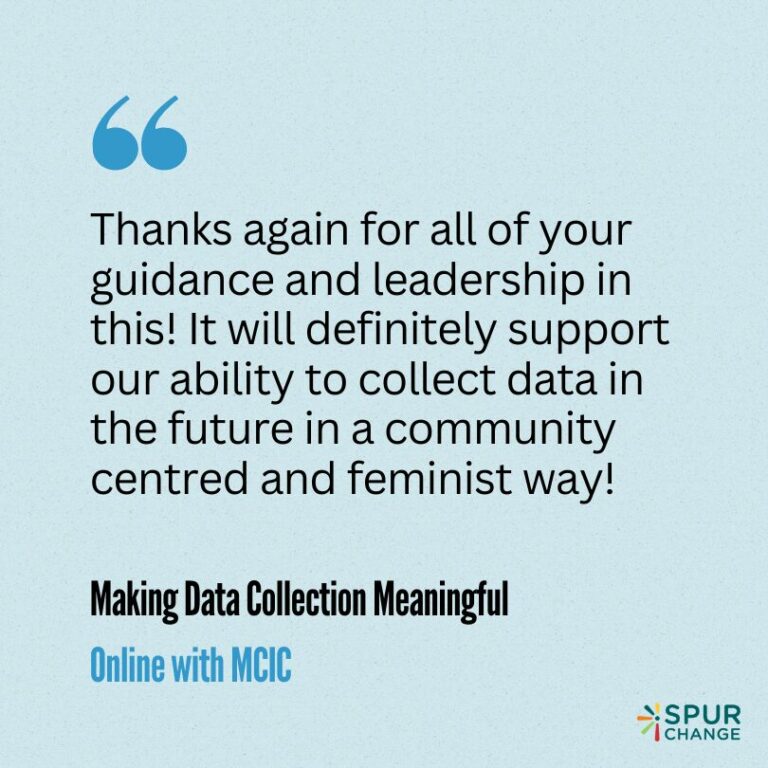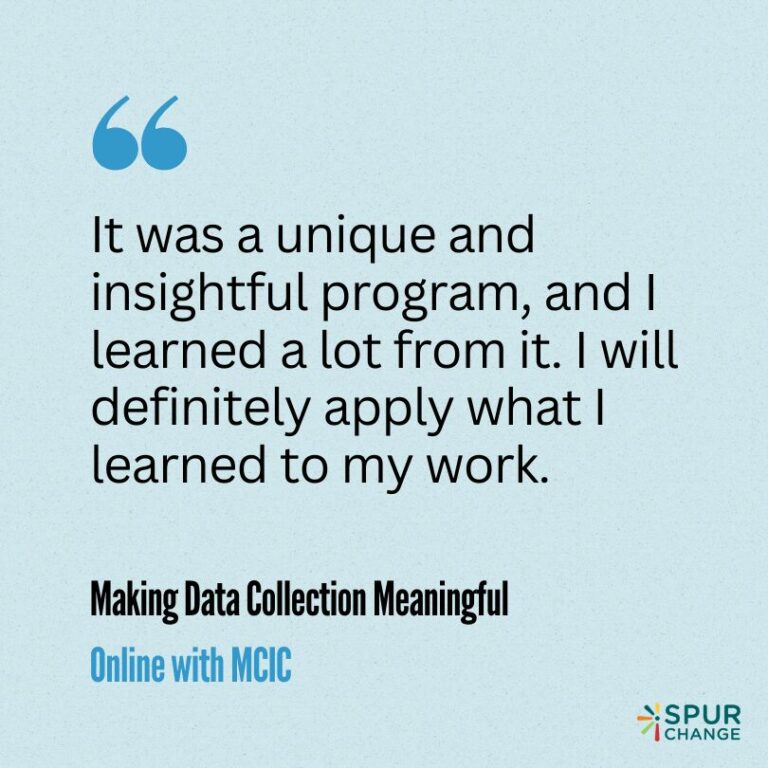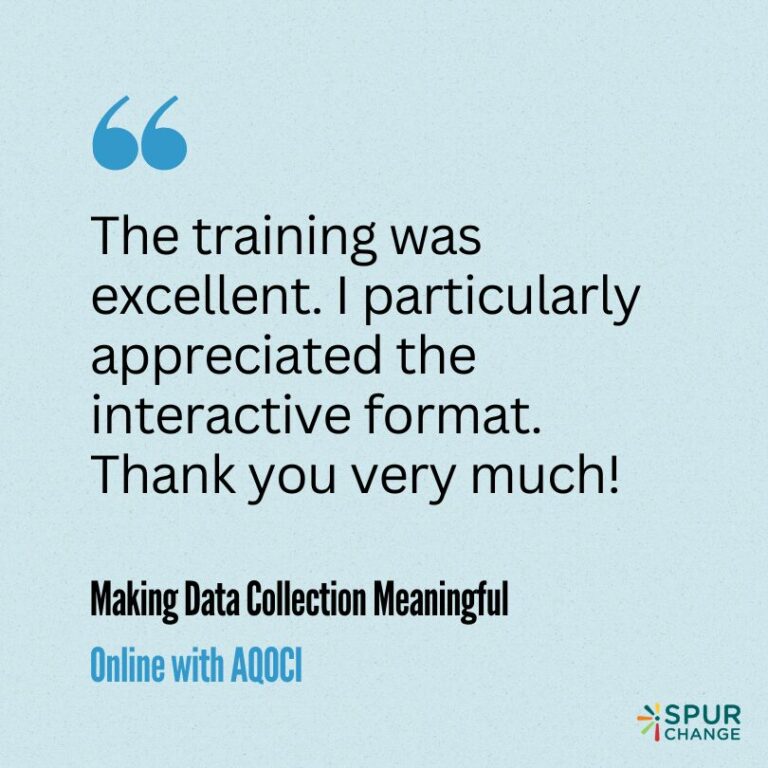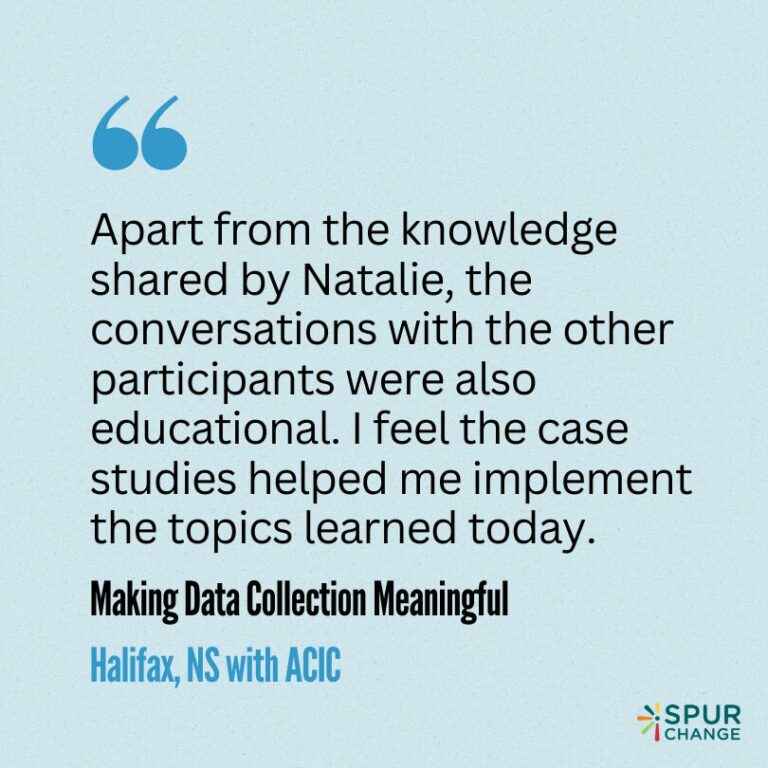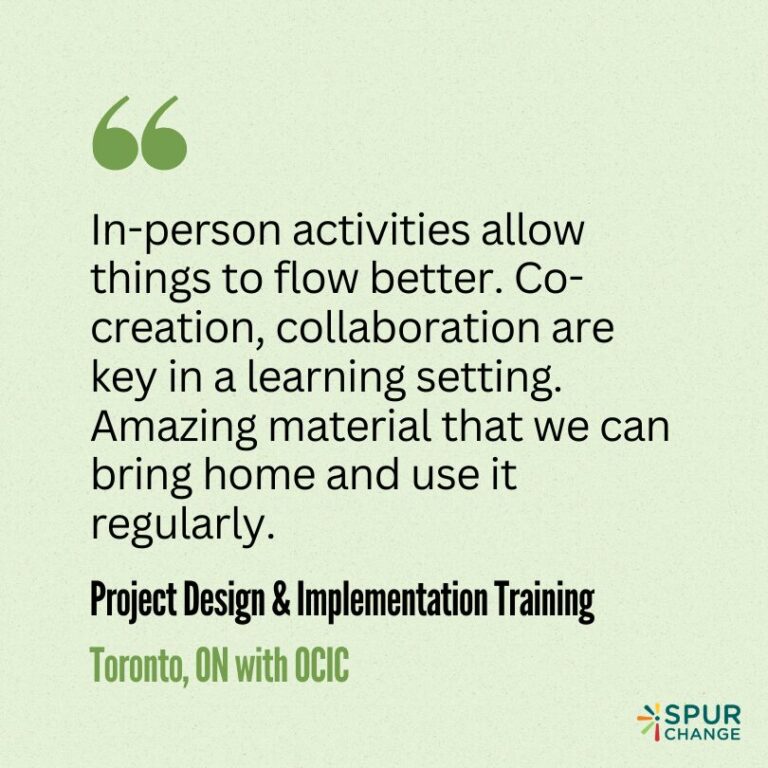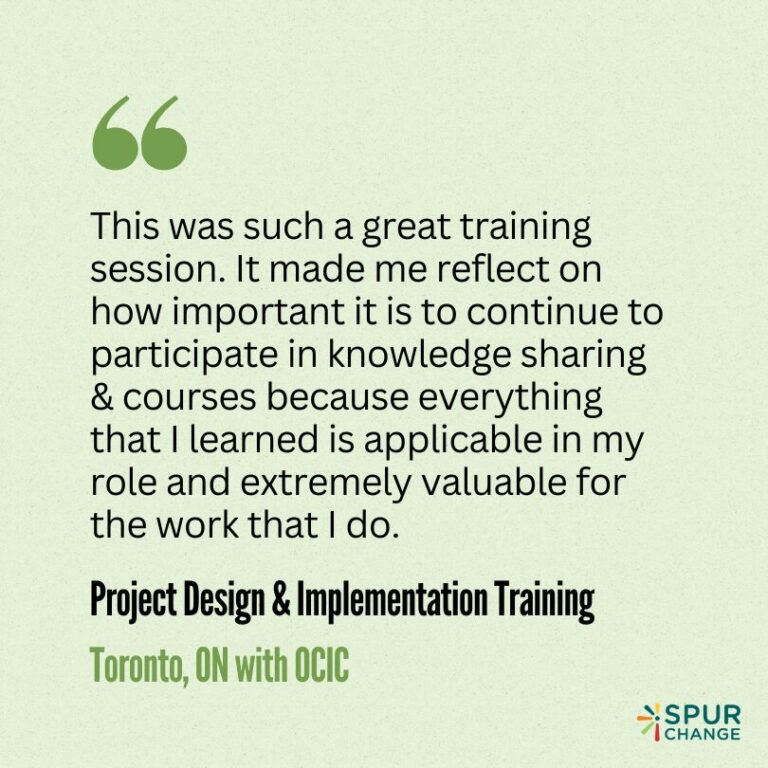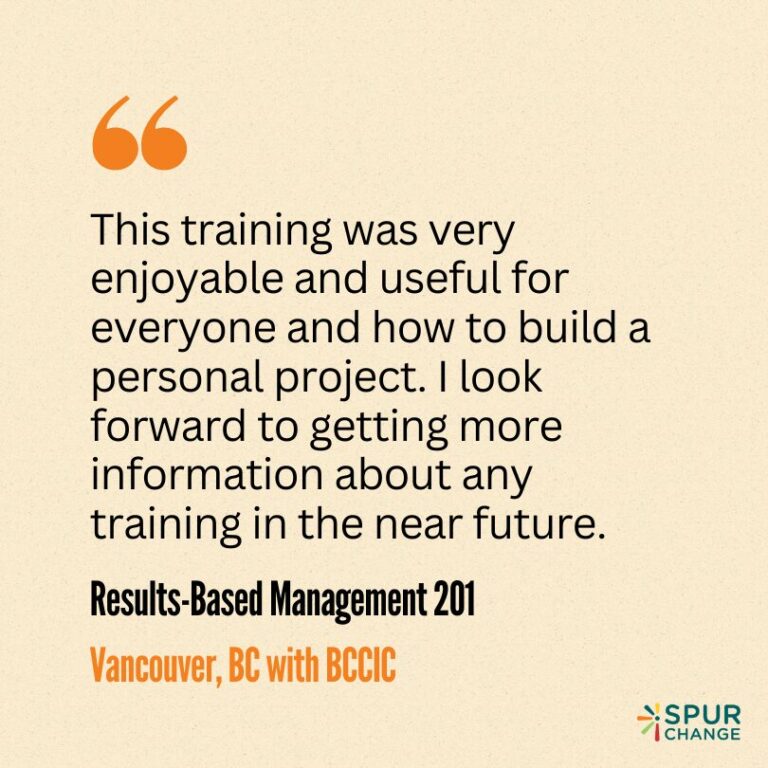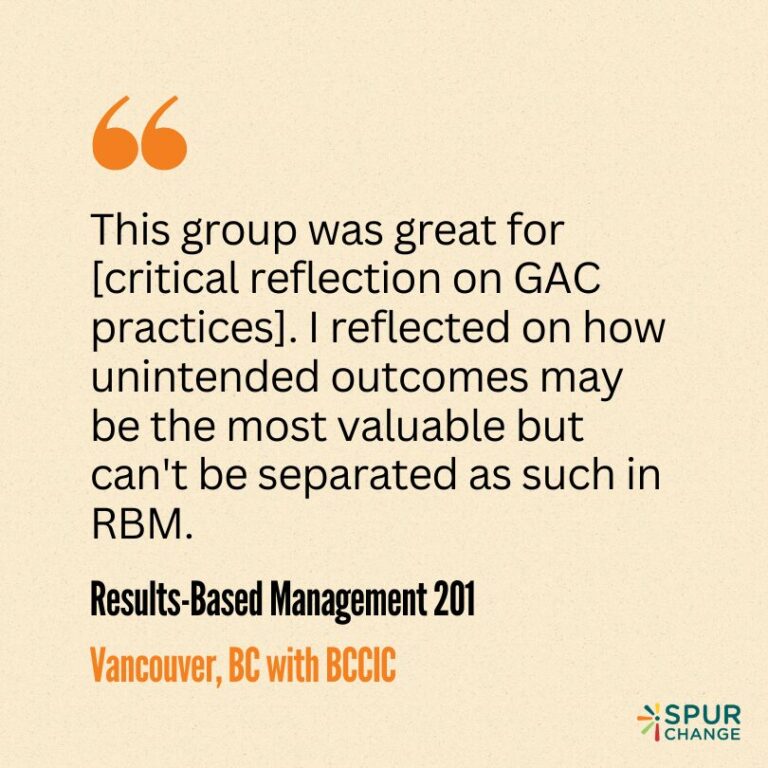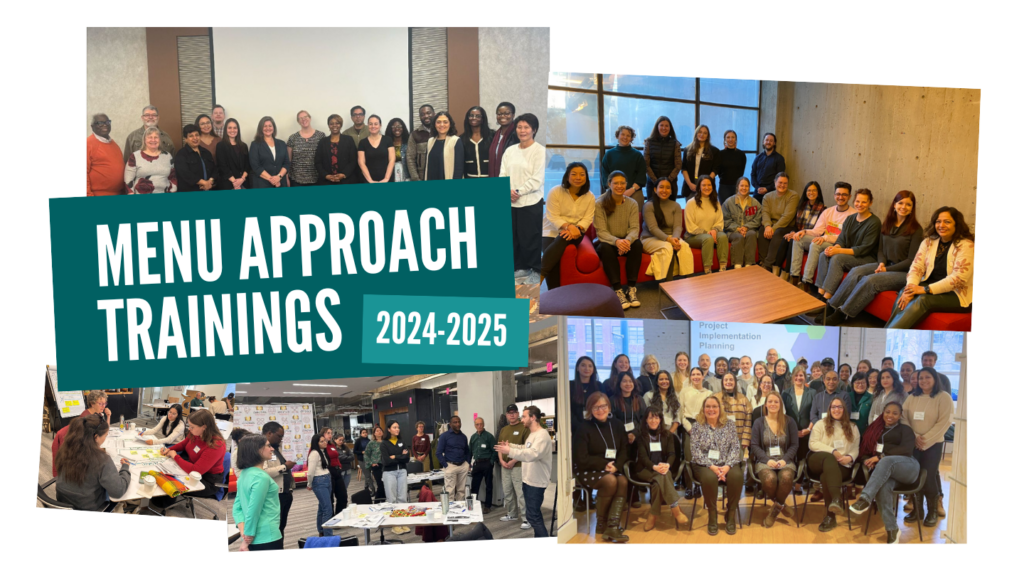
Since 2019, Spur Change has designed and held a wide range of training and learning opportunities tailored for Canadian small and medium size organizations (SMOs) working in international cooperation. In the fall of 2023, the decision was made to offer all Spur Change trainings to the regional and provincial councils for international cooperation in the form of a selectable “menu”. The councils were provided the option to choose from six possible trainings, based on their members’ needs. The trainings available can be found in our SMO resource list. The success of this process allowed for the easy decision to repeat it this past fiscal year. Coordination between consultants, council staff, and Spur Change ensured that the content reflected the stated goals of each council and was tailored to their members. This approach has further solidified and strengthened relationships between Spur, councils, SMOs, and our consultant partners. The Menu Approach promotes flexibility, collaboration, mutual learning and opportunity for all involved.
This past fiscal year (April 1, 2024 to March 31, 2025), seven Menu Approach trainings were held. A total of 60 SMO participants and 49 sector partners have benefited from these trainings. With another online training with AQOCI already planned for the end of April 2025, even more organizations will have the opportunity to take part.
 Making Data Collection Meaningful
Making Data Collection Meaningful
Dates: October 15, 17, 22, 24 (Online FR), October 16, 18, 23, 25 (Online EN), November 14 (Halifax)
In partnership with the Association québécoise des organismes de coopération internationale (AQOCI), this four-day online training provided participants with hands-on experience to explore planning for data-collection; gender sensitive, feminist and community-led approaches; and technology for data collection. Having previously offered the training in 2020, this training was made possible through collaboration with the original training creators from Salanga, and the facilitator Natalie Zend from ZenDialogue.
Occurring simultaneously with the Manitoba Council for International Cooperation (MCIC), the data collection course was also offered in English, primarily for MCIC member organizations. The two trainings occurring one day after the other allowed for greater insights and refinements from the organizational and pedagogical standpoint. The course content was updated for a more relevant, contemporary context to provide participants with the tools and knowledge for key options, pitfalls, and opportunities in the data collection for their organizations. The approach promoted a space for collaboration and knowledge-sharing between SMOs, as well as networking for future benefits.
Lastly, the culmination of lessons learnt, and analysis finalized in our one-day, in-person training in collaboration with the Atlantic Council for International Cooperation (ACIC). When Making Data Collection Meaningful was first proposed in 2020, it was designed to follow an in-person format that was later not possible to implement due to the Covid-19 pandemic. Transforming the four 2-hour online sessions into one single day for this training in Halifax resulted in strong engagement and retention, and an overwhelmingly positive response from Atlantic organizations.
 Project Design & Implementation Training
Project Design & Implementation Training
Dates: January 16-17 (Toronto), January 30-31 (Edmonton), March 4-5 (Regina)
This training in collaboration with the Ontario Council for International Cooperation (OCIC) and Small Shop, Big Impact, provided hands-on experience for participants to develop their project design and implementation skills. Focusing on the core elements of a Project Implementation Plan (PIP) and other requirements for projects funded by Global Affairs Canada (GAC), this two-day training allowed participants to strengthen their knowledge and skills through an intersectional approach taking into account gender equity, community participation, and the environmental impact of diverse projects. With over 25 years of experience Claire Holloway Wadhwani facilitated this training, personalizing it to the needs of the SMO participants.
Together with the Alberta Council for Global Cooperation (ACGC), Claire was kept busy with a second Spur-organized PIP training. Participants were encouraged to share their sources of funding, whether through GAC, other government organizations, or private donations. This allowed Claire to tailor the training to their funding sources while promoting ever-present and intersectional considerations.
Lastly, the flexibility of the Menu Approach allowed for the Saskatchewan Council for International Cooperation (SCIC) and Claire to organize an independent PIP training in Regina. Following a similar format to the other trainings, Claire and SCIC were able to directly reach their members and provide this invaluable training. As with the previous iterations, this was met with great success and members strongly valued the ability to attend this training in person. Participants noted the greater benefit of having interactive exercises and the networking opportunities that are more readily available than in an online space.
 Results-Based Management 201
Results-Based Management 201
Dates: January 22, 23 and 24 (Vancouver), April 23, 30, and May 6 (Online FR)
This three-day in-person training builds on the knowledge available through the online Results-Based Management (RBM) 101 course. Together with the BC Council for International Cooperation (BCCIC) and Jessica Wood (Centre West Consulting), this training focused on reinforcing SMO capacities to integrate sustainable and intersectional approaches towards RBM methods and concepts. Particular focus was placed on equitable, partnership-driven development practices. Utilizing case studies and group work, participants examined their own RBM skills and projects to build comprehensive and responsible frameworks. SMO participants from across BC and Alberta were encouraged to share and celebrate their own projects and achievements towards sustainable RBM practices.
This upcoming training with AQOCI and Baastel consulting will explore a deeper understanding of RBM and the knowledge gained from the RBM 101 self-paced online course. Thanks to the Spur extension, we have been able to organize the training at a time that is most convenient for AQOCI and their members. Preparations are well underway to ensure that this training meets the needs of SMO participants and further enhances their knowledge of RBM tools and concepts. Over the course of 3 online sessions, participants will reinforce their understanding of RBM and build knowledge through the use of relevant case studies.
Conclusion
Fulfilling Spur Change's mandate to support Canadian SMOs across the nation, this past year’s Menu Approach trainings have offered targeted and insightful capacity building opportunities. As we look forward to this nine-month extension, Spur Change is excited to offer more opportunities in partnership with the regional and provincial councils. In response to the feedback that we have received, we will be focussing on in-person trainings by using a regional approach and collaborating with multiple councils for these next trainings. Please keep on the lookout for future training opportunities through Spur and your local council!

